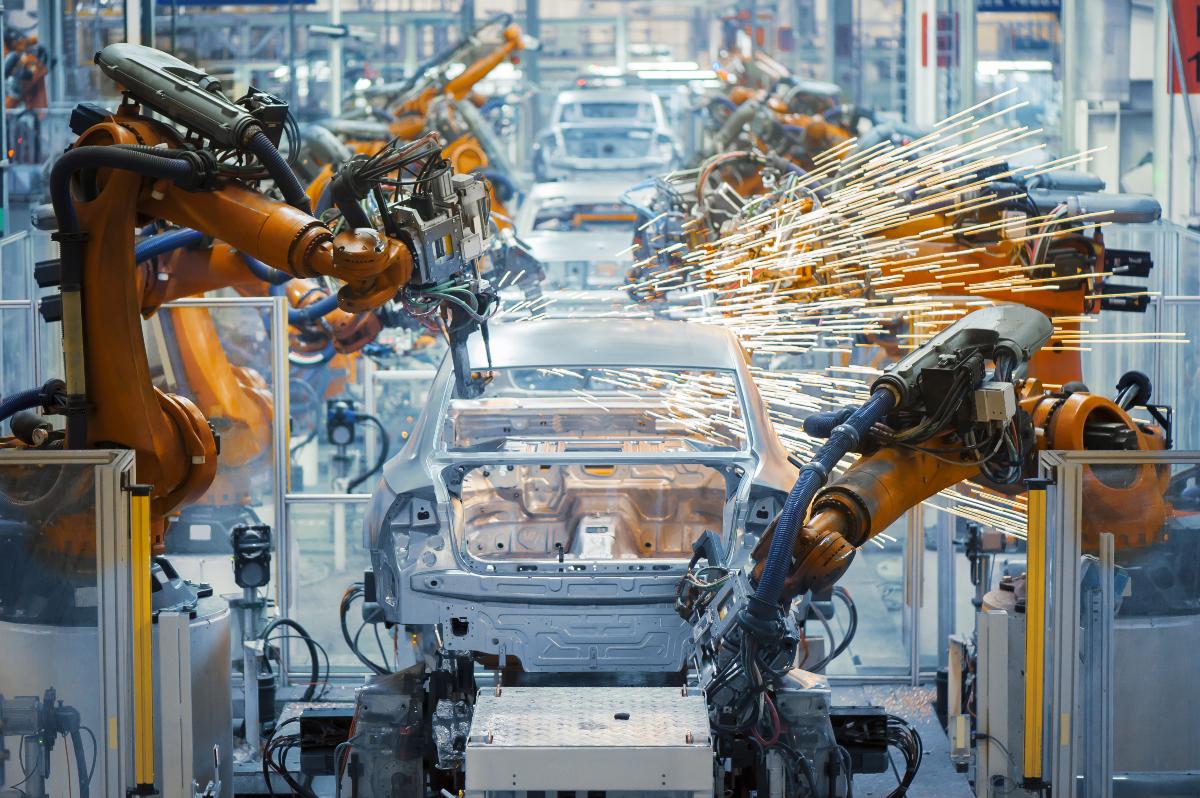The differences between industry and market are essential to understand if you are serious about making money from your business. The terms can seem like the same thing but are actually quite different. Let’s take a look at the differences.

What is Industry?
An industry is a sector of commerce that is dedicated to producing goods or services that fall under the same broad classification.
Here are some examples of industries:
- The food industry may produce beverages, food products for the general market, or specialty items for a specific demographic.
- The clothing industry produces basic apparel for the everyday man or woman or fashionable clothing for a specific demographic, such as women in the 18 to 25 age group.
- The pharmaceutical industry works with the production of goods, such as drugs and medications.
- Tourism provides services like tickets, accommodation, and transportation.
An industry comprises various companies engaged in the same business activity, such as designing and manufacturing particular products and offering specific services to the population. For example, the beauty industry is composed of different businesses that provide goods and services, like personal products, beauty appliances, and facial and skin treatments.
4 Types of Industries
- Primary industry: Obtains and provides natural resources such as forestry, agriculture, fishing, and mining.
- Secondary industry: Involved in construction and manufacturing. This industry utilizes the products from the primary industry to create, export, and sell other utility products. Secondary industries include food, textile, leather, plastic, and home appliances.
- Tertiary industry: Consists of the service sector. It includes professional services requiring social expertise and licenses like lawyers, doctors, and engineers. Other services include distributing, transporting, and selling goods from the production company to the consumers.
- Quaternary industry: Consists of intellectual activities associated with technological innovation. Examples of products and services include artificial intelligence, big data, the Internet of Things, nanotechnology, and autonomous vehicles.
Purpose of Industry Analysis
Industry analysis is a tool businesses use to assess the market. It also helps develop a strong sense of what’s happening in the industry.
This analysis involves evaluating the competition and target customers, the interplay of supply and demand, the future of technological developments, the impact of external factors, and new opportunities.
Therefore, conducting this analysis allows a business owner to develop financial, operational, and marketing strategies to help them achieve commercial success.
In the automobile industry, the consumer’s income affects the demand for vehicles, and the prices of steel, metal, aluminum, and rubber affect supply. Moreover, the competition can be very high.
Consequently, the business owner will consider their competitors, buyers’ income levels, and material costs when conducting analysis. In turn, this information can help create unique advertisements targeted to specific buyers.
Additionally, the dealer can better determine their pricing strategies to offset the costs of materials while getting a leg up on the competition.
What is a Market?
The market is where buyers and sellers meet to engage in an economic transaction. However, in business, the market is not just a place. Moreover, the presence of the market may or may not be physical, such as in the case of starting an online store.
Also, direct interaction between buyers is not necessary because the transaction can be done through phone, email, or a middleman.
Moreover, a market may be defined by geographic boundaries. It can be restricted locally or consist of several countries.

The market affects the prices of goods and services, determining supply and demand. The supply is produced by the sellers, while the buyers create demand. Consequently, markets try to find a balance in price when supply and demand are in harmony. However, the balance can be disrupted by external factors like income, cost of production, and the total of buyers and sellers taking part in the market.
Purpose of Market Analysis
Like industry analysis, market analysis helps a business assess the commercial feasibility of a new business. This analysis will also help companies find their niche and the target market’s characteristics, such as buying behavior. Moreover, the market analysis provides information about industries, customers, and competitors and determines supply and demand relationships.
Additionally, entrepreneurs should check online shopping statistics when starting an online business. Based on these insights, business owners can make more informed decisions about their marketing strategies.
For example, if you want to open a coffee shop, you will need to understand the value of the market and the annual revenue associated with selling coffee. Next, you should evaluate whether there is a need for such a product or service. Most importantly, you should consider the competition’s prices, products, and services. Only by doing so can you determine whether your business idea has the potential to become profitable in the restaurant market.
Key Differences Between Industry and Market
There are many differences between industry and market analysis. The fundamental difference is that the industry is a sector, whereas the market represents a system that enables the exchange of goods and services between buyers and sellers. Another difference is that a particular type of good or service is offered in the industry.
On the other hand, companies provide various kinds of goods and services in a market. Moreover, there is competition between firms to produce the best product and gain a competitive advantage in an industry. Contrary, in a market, different buyers and sellers compete to buy the best product and get the maximum share in the market.
Here are some other key differences between industries and markets:
Meaning
An industry is a collection of companies that create a product or service. Moreover, there is internal competition against similar companies in an industry. Finally, a market is where buyers and sellers meet to exchange goods and services.

Concept
The concepts of industry and market are different. Producers create an industry, whereas markets are created by demand and establish the link between sellers and consumers. For example, steel producers help create the car industry by producing the materials needed to build vehicles. Once the cars are manufactured, the market for vehicles is created when transactions occur between dealerships and auto buyers.
Effect of Technology
Technological innovations and breakthroughs can revolutionize and transform an industry. However, in the market, consumers can only react. For example, the private passenger transportation industry or the taxi industry was heavily affected by technology when Uber and Lyft were introduced and transformed taxi drivers’ operations. Due to the convenience, market consumers responded by turning towards Uber and Lyft services rather than taxis.
Variety of Products
The industry works with a single product category. On the contrary, a market comprises a large variety of products. For example, the pulp and paper industry is solely responsible for producing paper. In contrast, the stationary product market sells paper products, such as notebooks and envelopes, together with other items, such as erasers, staplers, and fountain pens.
How Do Industry and Market Diminish?
A market diminishes when the demand for a product or service decreases. Consequently, if the market for a specific product or service declines, the industry ceases to exist as there won’t be a purpose for it. For example, the newspaper industry can diminish when there is no longer a demand for newspapers in the market. This can occur because of the rise of technology and online news publications.
If you experience a decrease in demand due to the economy, you may utilize recession marketing strategies to combat these downturns.
Regulations
An industry is regulated by institutions that safeguard buyers’ interests. For example, the pharmaceutical industry is regulated by the United States Food and Drug Administration (FDA). At the same time, a market is regulated by self-imposed laws, such as consumers’ needs and the rules of supply and demand.
In Conclusion
Industry and market are different yet closely connected because an industry exists to serve a market. Both concepts are influenced by supply and demand and are the core functions needed to operate a business. To sum up, an industry is a specific group of firms that engage in similar business activities. Meanwhile, a market is a medium that assists buyers and sellers in meeting and exchanging products or services.


